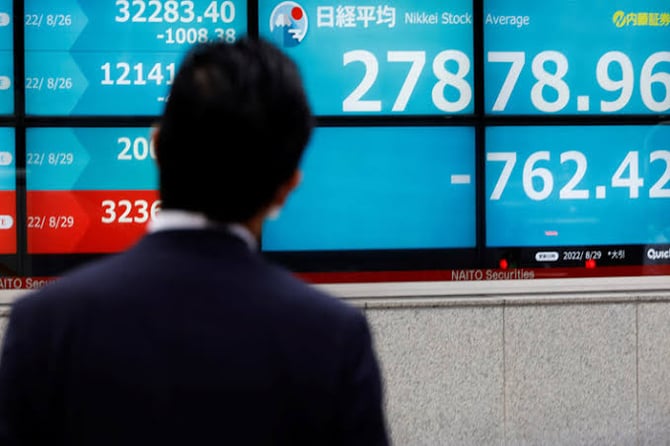Japan's Stock Market Revival Overshadows China's Decline

In a major shift in Asian financial markets, Japan's stock market is experiencing a significant resurgence, contrasting with the downturn of China's markets.
The Tokyo Stock Exchange, once overlooked by major investors, is now approaching its highest levels since December 29, 1989, nearing the record high of the Nikkei 225 Index.
This revival is primarily fueled by foreign investments, which have recently injected over $8 billion into the Japanese market. The Nikkei 225 has witnessed an impressive 8% increase in the past month, accumulating over a 30% rise in the last year.
In contrast, China's stock market is facing a steep decline, with lows not seen in almost a decade. The Hang Seng Index in Hong Kong, which was notably underperforming in 2023, experienced a further 1.6% drop recently, continuing its downward trend.
This reversal in Asian market dynamics is attributed to changing investor perceptions towards Japan and China. Japanese Prime Minister Fumio Kishida has acknowledged this shift as a pivotal opportunity for Japan to overcome longstanding economic challenges, such as low growth and deflation.
What Does This Mean for Me?
Analysts suggest that the surge in Japan's market is partly due to Chinese investors seeking stable alternatives amidst uncertainties in their home market.
While China, the world's second-largest economy, has been losing investor confidence, Japan, now the third-largest economy, has implemented reforms to attract foreign investment.
Analysts agree that Japan's decade-long efforts to enhance its corporate environment and attractiveness to equity investors are finally starting to pay off, especially compared to the prevailing skepticism about China's investment climate.
More News

SoftBank Cashes Out of Nvidia to Double Down on AI Bets
1 week ago

Amazon Rallies 13% as Cloud and AI Power Record Earnings
3 weeks ago

Apple Is Now a $4 Trillion Company
3 weeks ago

UK’s FTSE 100 Hits Record as HSBC Gains Boost Market Confidence
4 weeks ago

Kospi Hits Record as Asian Markets Rally Ahead of Trump–Xi Talks
1 month ago

European Single Stock Exchange Mooted, Even if Execution Will Be Hard
1 month ago

Nestlé Resets With 16,000 Cuts in The Offing
1 month ago

Samsung and SK Hynix Lead Mixed Asian Stocks
1 month ago